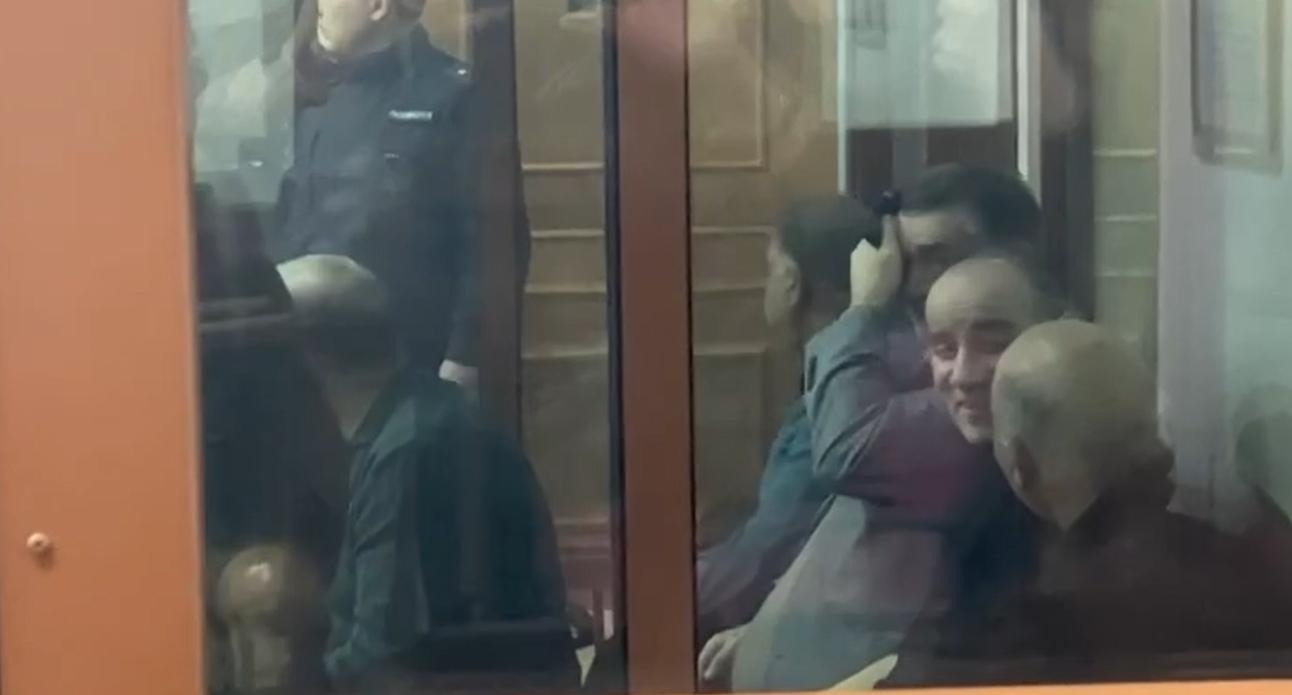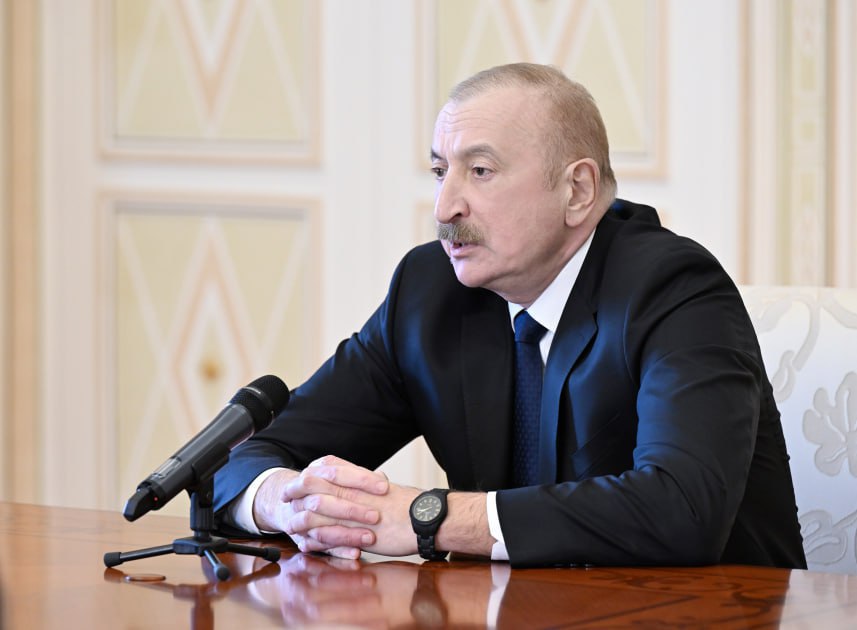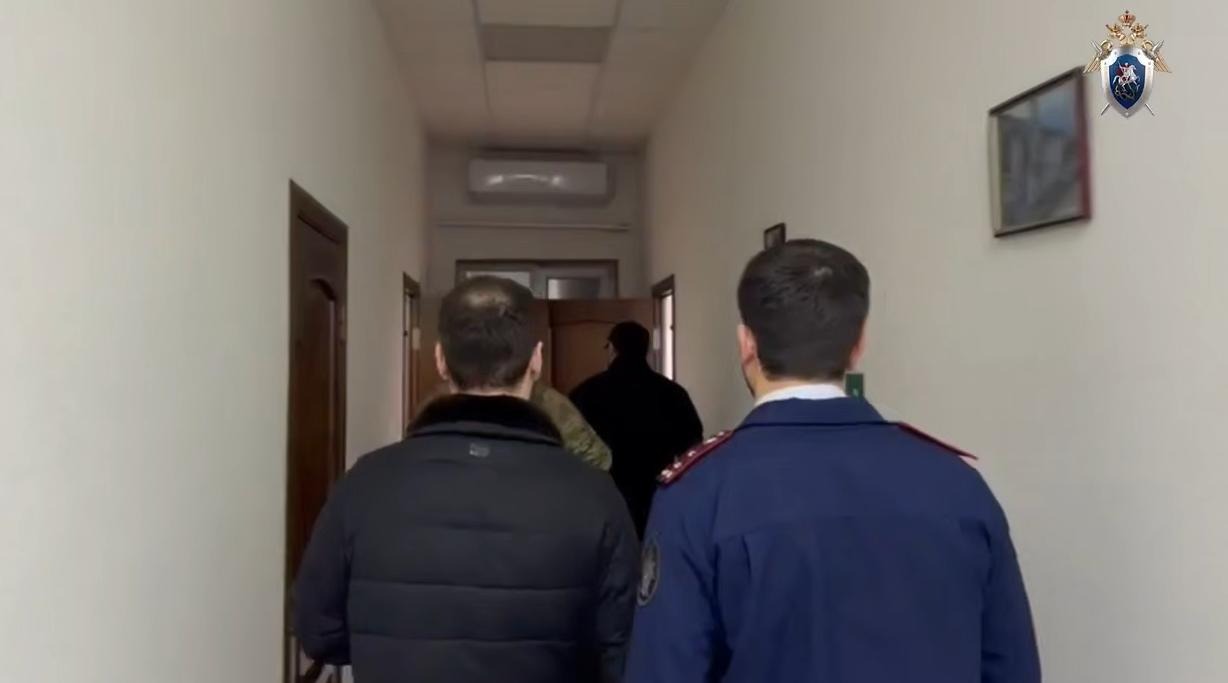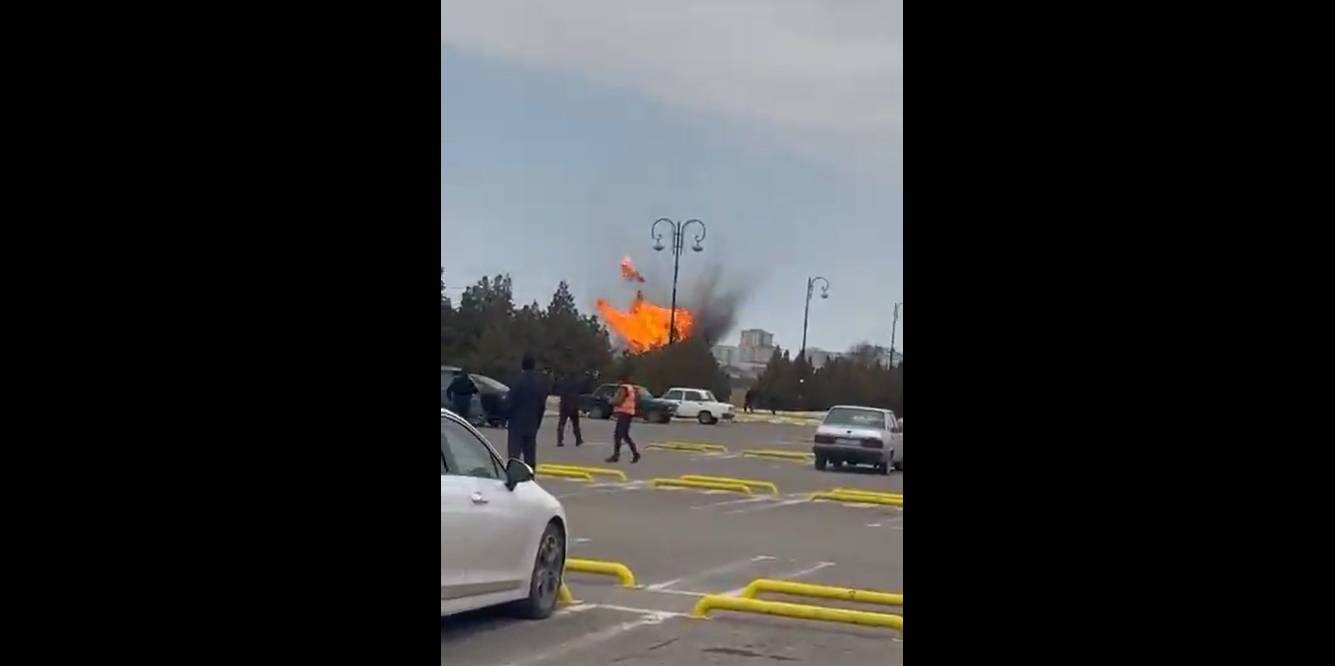The former head of the Azerbaijani diaspora in Yekaterinburg, Shahin Shikhlinsky, was sentenced to 22 years in a maximum-security prison colony. Six other Azerbaijani-born individuals received sentences ranging from 10 to 20 years.
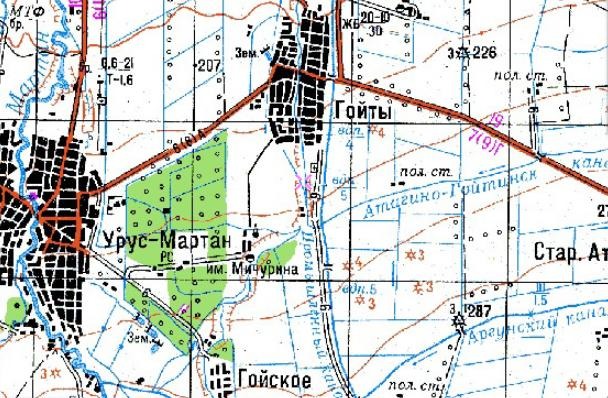
November 4, 2001
***
At 2 a.m. in the city of Urus-Martan, employees of an unidentified security agency - up to 20 people in total - kidnapped two local residents. Having burst into the house on Chekhov Street, they did not introduce themselves and, without explaining the reasons for their actions, took the son of the owner of the house, Shamil Bazaev, and his neighbor, Khasan Umarovich Amayev, born in 1982, out onto the street. The latter often came to the Bazaevs to watch TV, since his sick father could not stand the noise. At the time of the abduction, the young people were just watching TV.
Unknown people took away Bazaev and Amayev in cars without registration plates. After the arrest, the young people no longer saw each other: they were put in different cars. On the way, the severely beaten Shamil Bazaev was thrown out of the car. He still did not understand who detained them and where Khasan Amayev was taken.
In the afternoon, the relatives of the kidnapped person contacted the VOVD and the ROVD, but the leaders there stated that they allegedly had nothing to do with the incident. On the same day, representatives of the civil administration of the Urus-Martan district were informed about the incident. Relatives of Khasan Amayev tried to contact the commandant's office of the Urus-Martan district, but the military did not allow his mother Zargan to the gate. She couldn't even deliver the statement. As of January 24, 2006, when a desperate woman turned to the staff of the Memorial Human Rights Center, the whereabouts of her son had not been established.
The kidnappers, according to eyewitnesses to the crime - members of Shamil Bazaev's family - spoke Russian without the slightest accent. While still in the house, they began to beat Amaev and Bazaev. Khasan Amayev lived in Urus-Martan at the address: Chekhov St., 1. His illiterate mother could not remember to which authorities she complained or filed statements and whether the prosecutor’s office initiated a criminal case. According to her, they received information that in one of the places of detention in Rostov-on-Don there is a man who was allegedly taken away from Urus-Martan on the same day as her son, and that his name is the same - Khasan Amayev ( without middle name). However, this information has not been confirmed.
***
At about 5 o'clock in the morning in the village of Goyty on Shamova Street, several local residents were captured. Russian soldiers burst into house no. 90 and began beating everyone, without understanding whether they were men, women, or even children. They turned over and destroyed everything that came in their way. The pogrom continued until 46-year-old Alexander Merluev appeared in front of the military. One of them shouted: “Here he is!” After this phrase, only he was beaten. After some time, the military found out that he was not the one they were looking for. One of them, looking at the passport, asked in surprise: “Namesake?” Having stopped the beatings, he and other military men went into the next room. Alexander Merluev’s younger brother, Musa Yakubovich Merluev, born in 1959, was there. Having contacted by radio, one of the military asked: “Shall we take a second one?” After listening to the answer, Musa Merluev was taken out into the street and taken away in an unknown direction. Nobody explained to the relatives where and why. On the same day, relatives turned to the heads of the security forces of the Urus-Martan district, but it was not possible to establish who kidnapped Musa Merluev and where he was being kept. The FSB Directorate, the military commandant's office, the VOVD and the ROVD denied the involvement of their employees in the incident. According to relatives, the abducted man had nothing to do with the ChRI Military Fleet and did not participate in hostilities. As of early 2006, his whereabouts had not been established. Memorial Human Rights Center does not have any more recent information.
Musa Merluev's kidnappers were in uniform, some were wearing masks. They arrived on Shamova Street in an armored personnel carrier without a registration number and in a UAZ-452 (“tablet”) vehicle without registration plates. The ethnicity of the kidnappers, at least those of them who were without masks, is Russian.
Alexander Merluev was searching for his kidnapped brother. With a request for assistance in establishing his whereabouts, he turned to the head of the Chechen administration, Akhmad Kadyrov, and the deputy of the State Duma of the Russian Federation, Aslambek Aslakhanov.
December 20, 2001, according to Art. 126 part 1 (kidnapping) of the Criminal Procedure Code of the Russian Federation, criminal case No. 25167 was opened. Due to the alleged “impossibility of identifying the persons involved in the crime” (Article 195 of the Criminal Procedure Code of the RSFSR), the case was suspended. On January 15, 2002, the Chechen prosecutor’s office informed Alexander Merluev that his application had been sent to the prosecutor’s office of the Urus-Martan district “for verification in accordance with Article 109 of the Code of Criminal Procedure of the Russian Federation”1. The relatives did not file a lawsuit against the inaction of the prosecutor’s office, nor did they file a complaint with the ECHR.
The information that reached the relatives of Musa Merluev that he may be in prison on the territory of the Republic of North Ossetia-Alania has not been confirmed. As of February 2006, his whereabouts had not been established. Memorial Human Rights Center has no other information.
Then, at dawn, the military broke into house No. 94, where the spouses Sultan and Yesita Ismailov and their family lived.
The security forces came to this house on foot, leaving their equipment on a nearby street. Without introducing themselves or explaining their actions, the military went into the room and lifted Anzor Sultanovich Ismailov, born in 1980, from his bed. While some of them were checking his passport, others managed to search the premises. All this time, the owner of the house was forced to lie on the floor with a machine gun pointed at his body.
Having finished the search, the military took Anzor Ismailov out onto the street, put him in an UAZ vehicle that arrived (without registration plates) and drove away in an unknown direction.
In the days and months that followed, relatives were unable to establish the whereabouts of the young man. The law enforcement agencies they contacted flatly refused to say who could have organized this kidnapping and for what reason. But around 2003-2004. The village district inspector received a request from somewhere demanding a character reference for Anzor Ismailov. Having learned about this, Sultan Ismailov turned to the policeman. He admitted that he had received a request for his son, but did not dare say where or from whom. According to the district police officer, having written the reference, he simply... “put it on the table.”
Anzor Ismailov did not participate in hostilities and was not a member of the VF of the ChRI. He worked in construction, as his mother Yesita Ismailova said, “he made an honest living.” His special features: a scar on the back of his head measuring 3-4 cm, a birthmark on his arm, blond hair.
On November 29, 2001, relatives of Anzor Ismailov turned to the Memorial Human Rights Center with a request for assistance in finding him. A repeated application was received from them on February 17, 2006. After the application, a criminal case was opened to the prosecutor's office (No. 25193 under Article 126 (kidnapping) of the Criminal Code of the Russian Federation). However, they knew nothing about his condition at the beginning of 2006. In addition, the relatives also contacted other government and human rights authorities: the internal affairs bodies of the Urus-Martan district and the republic, the Federal Security Service of the Russian Federation for the Chechen Republic, the military commandant’s office, and employees of the interregional public movement in defense of human rights and freedoms “Coalition”. All these efforts were in vain: Anzor Sultanovich Ismailov disappeared.
***
At about 2 p.m. in the city of Urus-Martan, young people standing on Vygonnaya Street noticed a Ural car and two armored personnel carriers approaching at high speed. There were soldiers sitting on the armor who opened fire with automatic weapons. One of the young people, Alvi Alievich Asukhanov, born in 1974, ran into the garden and fell. Two soldiers ran up to him and fired several shots at point-blank range. After this, the wounded man was dragged to an armored personnel carrier and taken away.
The military detained two more young people from this group. One of them, a teenager, was released after some time. Returning home, he said that Alvi Asukhanov was alive when they were brought to the commandant’s office, and there he was finished off with a shot in the forehead. The military transferred the body of the murdered man to the Urus-Martan District VOVD, from there it was handed over to relatives for burial (according to other sources, the body was bought from the police). Fearing possible persecution by Russian security forces, none of the relatives of the murdered man subsequently dared to complain anywhere.
Another young man who fell into the hands of the military, Khavazhi Makhmudovich Elikhanov, born in 1977, who lived in Urus-Martan at the address: Soldatskaya St., 4, disappeared without a trace. His characteristics: average height, weight 70 kg, red hair, brown eyes. There is a birthmark on the back of the head, and a scar on the right arm. On December 14, 2001, on the fact of the abduction (Article 126, Part 2 of the Criminal Code of the Russian Federation) of Khavazhi Elikhanov, the prosecutor’s office of the Urus-Martan district opened criminal case No. 25158. Two months later, on February 14, 2002, due to the alleged “impossibility of establishing persons involved in the commission of a crime” (Article 195, paragraph 3 of the Code of Criminal Procedure of the RSFSR), the case was suspended.
The relatives submitted applications to the police department and the VOVD of the Urus-Martan district, the military commandant's office and the prosecutor's office. We composed and sent a letter to the President of the Russian Federation. They did not file a lawsuit against the inaction of the prosecutor’s office, nor did they file a complaint with the European Court of Human Rights. Human Rights Center “Memorial” was contacted twice: the first time - immediately after the abduction of Khavazhi Elikhanov and again - on July 19, 2006. According to unofficial information, he was kept in the district commandant’s office for some time, then was transported to the village of Khankala. The young man subsequently disappeared from the territory of the main military base of Russian troops in Chechnya. As of mid-2006, his whereabouts had not been established. Relatives received information that Khavazhi Elikhanov was in one of the Rostov prisons (presumably in Zverevo), but they did not receive confirmation.
In 2005-2006 one of the residents of the village of Sernovodsk brought the employees of the Human Rights Center “Memorial” a list of “... people held in places of detention in Rostov and North Ossetia-Alania.” Similar documents often passed through the hands of those who were looking for their missing relatives. Among the residents of the Chechen Republic, some of whom were probably also abducted, was a certain “Elikhanov Khavazh, born in 1977.” The place of his detention was also indicated - “Rostov”. Memorial Human Rights Center does not have any more recent information.
From the book “People Live Here”, Usam Baysaev, Dmitry Grushkin, 2006.
